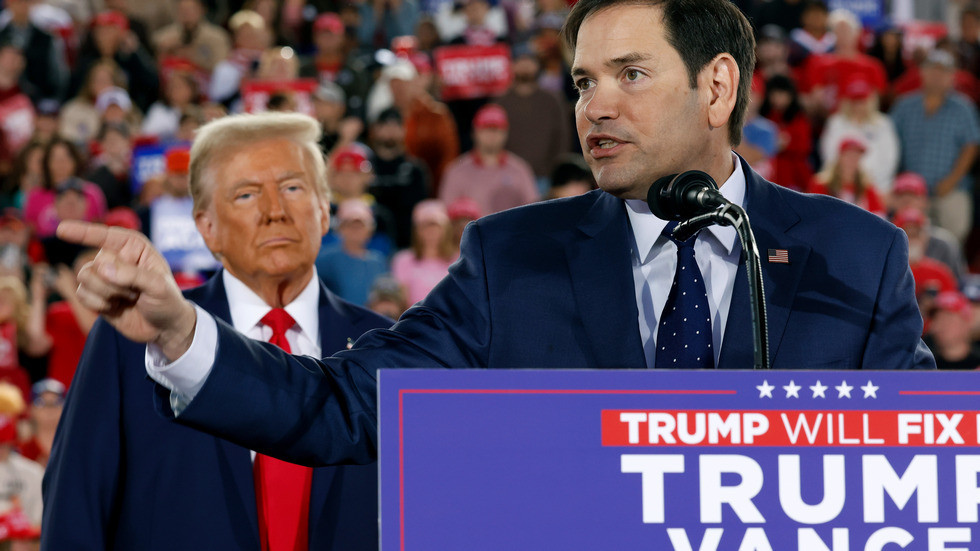In recent discussions surrounding the ongoing conflict in Ukraine, Senator Marco Rubio has emphasized the necessity of working towards an end to the hostilities, arguing that continued American assistance is effectively contributing to a stalemate rather than fostering any meaningful resolution. In an interview with NBC News, Rubio, who holds a significant role as vice chairman of the Senate Select Committee on Intelligence, highlighted that the U.S. should prioritize an end to the conflict, especially in light of Donald Trump’s recent presidential victory. He expressed that the desire to conclude the conflict does not equate to showing support for Russian President Vladimir Putin; rather, it is a rational approach that acknowledges the devastating impact of prolonged warfare on Ukraine.
Rubio’s comments underline a critical viewpoint—the protraction of the conflict could potentially set Ukraine back a century, emphasizing the urgent need for a resolution. He critiques the Biden administration’s current approach to aid, suggesting it inadvertently perpetuates the ongoing strife without leading to a decisive outcome. This notion reinforces Rubio’s stance that concluding the war should be seen as “common sense,” an objective that transcends political affiliations or allegiances in international relations. While he does not advocate for conceding to Russian demands, he posits that engaging in dialogue aimed at peace is imperative for the future of Ukraine and regional stability.
Beyond Rubio’s statements, Trump’s reaction to the war has also been notable, with the former president indicating an ambition to resolve the conflict rapidly—within a day—if re-elected. Trump’s proposed strategies appear to focus on negotiating terms that could involve Ukraine delaying its NATO aspirations and establishing a demilitarized zone along current front lines. This suggests a willingness to balance military support for Ukraine with diplomatic negotiations, although the plan remains speculative. Additionally, Trump has expressed disagreement with a blanket policy on aid to Ukraine, indicating a shift towards a more calculated approach in U.S. foreign policy regarding military support.
The response from Russian officials underscores the complexities and challenges inherent in reaching a peaceful solution. Kremlin spokesman Dmitry Peskov reiterated that Russia’s objectives—including Ukrainian neutrality and demilitarization—must be fulfilled for any negotiations to be successful. Such firm stances indicate that both sides may have significantly different perceptions of what constitutes a viable resolution. This divergence may complicate any peace efforts, as each party holds distinct goals and requirements. The insistence on achieving military objectives before seriously considering dialogue further complicates the landscape of international diplomacy.
Notably, the prospect of negotiations is not solely dependent on the U.S. administration but also on the dynamics between Ukraine and Russia. The Kremlin’s openness to dialogue, as indicated by Peskov, suggests a potential avenue for future discussions, although the path to a resolution is fraught with challenges. With each side firmly entrenched in its respective positions, the time required to reach a settlement may far exceed immediate expectations, highlighting the long-term implications of the conflict on all parties involved.
Ultimately, the discourse surrounding the Ukraine conflict—as voiced by robust figures like Senator Rubio and former President Trump—highlights a crucial turning point in U.S. foreign policy. The dialogue emphasizes the need for an urgent and effective resolution to prevent further devastation in Ukraine while navigating the complex relations with Russia. Achieving this outcome calls for a sophisticated combination of military readiness and diplomatic engagement, reflecting the intricate balance the U.S. must maintain as it seeks to foster peace in a region marked by longstanding tensions and unforeseen consequences. The potential for a diplomatic solution hinges on addressing the entrenched positions of both nations, necessitating a strategy that acknowledges the realities on the ground while striving for a sustainable peace.

